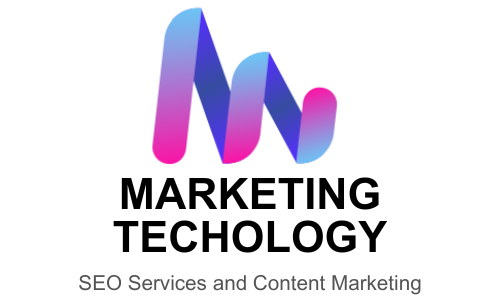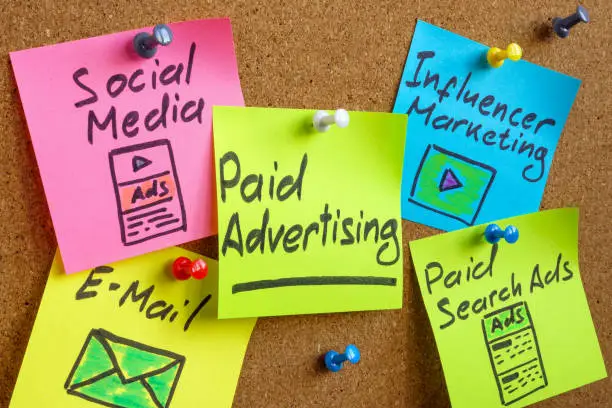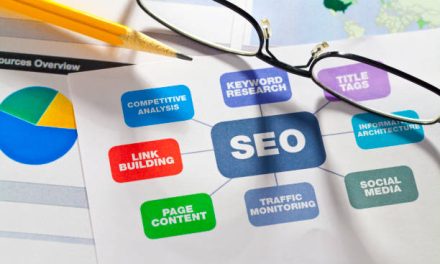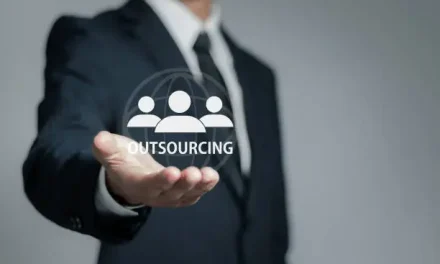In the ever-evolving world of digital marketing, businesses are continually looking for the most effective ways to increase their online visibility, generate traffic, and ultimately grow their revenue. Two of the most powerful tools in a business’s digital marketing arsenal are Search Engine Optimization (SEO) and Paid Advertising (PPC). Both of these strategies are designed to help your business reach its target audience, but they do so in different ways. While SEO focuses on earning organic traffic through search engine rankings, paid advertising targets specific demographics with paid ads. But when it comes to deciding which one is better for your business, how do you make the choice? In this article, we will dive deep into the differences, pros, cons, and scenarios in which each of these strategies can be beneficial. So, let’s break down SEO vs Paid Advertising to see which is the most effective for your business.
Why SEO and Paid Search Matter?
The digital age has made online visibility one of the most crucial components of a successful business strategy. With millions of websites competing for attention, it’s essential to find ways to stand out. Whether it’s through organic search results (SEO) or paid advertising (PPC), being visible on search engines can make the difference between attracting a steady stream of potential customers or getting lost in the vast sea of the internet.
SEO and Paid Search are both important because they offer distinct ways to achieve online visibility and drive traffic to your website. SEO is more of a long-term investment, providing sustainable and cost-effective results over time. On the other hand, paid search can deliver quick traffic, making it useful for immediate needs like launching a new product or promoting a time-sensitive offer.
But understanding the differences between these two methods will help you make a more informed decision based on your specific goals, timeline, and budget.
What is SEO?

Search Engine Optimization (SEO) is the process of optimizing your website so that it ranks higher in search engine results pages (SERPs) for specific keywords or phrases. The goal of SEO is to improve the quality and quantity of organic (non-paid) traffic to your website. SEO involves a combination of technical, on-page, and off-page strategies aimed at enhancing your site’s visibility.
Key components of SEO include:
- Keyword Research: Identifying relevant keywords that your target audience is likely to use when searching for your products or services.
- Content Creation: Developing high-quality, informative, and engaging content that addresses the needs of your audience while incorporating targeted keywords.
- Link Building: Gaining backlinks from authoritative websites that signal to search engines that your site is credible and relevant.
- Technical SEO: Ensuring that your website is technically optimized for search engines, such as improving site speed, mobile responsiveness, and ensuring proper indexing of your pages.
Pros and Cons of SEO
Pros of SEO:
- Long-Term Results: SEO tends to provide lasting results. Once your website reaches a top position in the search engine rankings, it can maintain that position with minimal maintenance.
- Cost-Effective: Unlike PPC, SEO doesn’t require an ongoing budget for clicks. While it takes time and effort to implement, once you achieve high rankings, the ongoing cost is relatively low compared to paid campaigns.
- Increased Trust and Credibility: Users tend to trust organic results more than paid advertisements, viewing them as more credible. Appearing on the first page of search results can build trust with your audience.
- Higher Click-Through Rates (CTR): Studies show that organic listings tend to attract more clicks than paid ads, which can lead to a higher return on investment (ROI).
Cons of SEO:
- Takes Time: SEO is not a quick fix. It can take months before you see significant improvements in rankings and organic traffic. This makes it less suitable for businesses that need fast results.
- Requires Ongoing Effort: SEO is not a one-time task. You need to continually optimize your site, create fresh content, and keep up with search engine algorithm updates to maintain your rankings.
- Results Are Not Guaranteed: Even with the best SEO practices, ranking high on search engines can be difficult, especially in competitive industries. There’s always the possibility that your efforts might not yield the results you expect.
What is Paid Search (PPC)?

Paid Search, or Pay-Per-Click (PPC) advertising, is a digital marketing model where businesses pay to have their ads displayed on search engine results pages or other platforms, such as social media. When someone clicks on your ad, you pay the search engine or platform a predetermined amount. This allows you to target specific keywords and demographics, ensuring your ads reach the right audience.
Paid search ads appear at the top or bottom of the search results, typically marked as “Ad” or “Sponsored.” PPC campaigns can also be run on other platforms like Google Display Network, YouTube, or social media platforms such as Facebook, Instagram, and LinkedIn.
Key components of PPC include:
- Keyword Selection: Just like SEO, choosing the right keywords is crucial to the success of your PPC campaigns.
- Ad Creation: Developing compelling ad copy that attracts users and encourages them to click on your ad.
- Bidding: PPC operates on a bidding system, where you pay for each click on your ad. The cost per click (CPC) can vary depending on the competitiveness of the keyword.
- Landing Pages: Ensuring that the landing page the ad directs users to is relevant, high-quality, and optimized for conversions.
Pros and Cons of Paid Search (PPC)
Pros of PPC:
- Immediate Results: Paid search delivers instant visibility. As soon as your ads are live, you can begin attracting clicks and traffic to your site.
- Highly Targeted: With PPC, you can narrow down your audience based on specific demographics, location, search behavior, and even device type. This allows you to reach the right people at the right time.
- Scalability: With a larger budget, you can increase your ad spend and scale your PPC campaigns quickly, driving more traffic to your site.
- Measurable Results: PPC campaigns offer in-depth metrics, so you can measure the success of your ads, track conversions, and adjust your campaigns to improve performance.
Cons of PPC:
- Expensive: In highly competitive industries, the cost-per-click (CPC) can be quite high, making PPC an expensive strategy if not managed carefully. If you don’t optimize your campaigns, your costs can easily spiral out of control.
- Temporary Traffic: Once you stop paying for ads, the traffic stops. Unlike SEO, which can generate long-term results, PPC is a short-term solution that requires ongoing investment.
- Requires Constant Management: PPC campaigns need constant monitoring and optimization. If you’re not regularly analyzing your campaigns and adjusting bids, ad copy, and targeting, your ROI may suffer.
The Difference Between SEO and PPC
The key difference between SEO and PPC lies in how they generate traffic:
- SEO: Focuses on earning organic traffic through search engine rankings. The results take time but can be long-lasting with minimal ongoing costs after optimization.
- PPC: Involves paying for clicks to your ads on search engines or other platforms. It offers immediate visibility and traffic but requires an ongoing budget to maintain.
While SEO builds trust and credibility through organic rankings, PPC can give you immediate access to your audience, especially for time-sensitive promotions or highly competitive keywords.
Which is Better: SEO vs Paid Advertising?

The choice between SEO vs Paid Advertising depends on your specific business needs, goals, and resources.
- Choose SEO if:
- You have a long-term vision and can afford to invest in an ongoing strategy.
- Your business is in a competitive market where organic search rankings are valuable.
- You want to build long-term credibility and trust with your audience.
- Choose PPC if:
- You need immediate results or traffic.
- You are promoting seasonal offers, new product launches, or time-sensitive promotions.
- You have a flexible budget for advertising.
However, for many businesses, a combination of both SEO and PPC is the most effective strategy. While SEO provides long-term, sustainable traffic, PPC can be used to drive immediate results and give your business a competitive edge in the short term.
How Can We Help?
At Marketing Techology, we specialize in both SEO and Paid Advertising strategies. Our team of experts can help you optimize your website for organic search results, build high-quality content, and create targeted PPC campaigns that drive results. Whether you’re looking for ongoing SEO services, content marketing strategies, or the management of a PPC campaign, we are here to help you navigate the digital landscape and make the best choice for your business. Let us help you increase your online visibility and grow your business today.
Frequently Asked Questions
Which requires more expertise: SEO or Paid Advertising?
Both SEO and Paid Advertising require specialized skills, but SEO tends to be more technical, as it involves understanding search engine algorithms, website optimization, and content strategies. PPC, on the other hand, focuses more on campaign management, keyword research, and ad targeting. Both fields require expertise, but SEO is typically more complex in terms of long-term strategy and technical aspects.
Can I do both SEO and Paid Advertising myself?
While it’s possible to manage both SEO and PPC yourself, it requires time, knowledge, and continuous effort to see effective results. If you’re new to digital marketing, it may be worth working with a professional to ensure your strategies are optimized and delivering the best results.
Does the choice depend on my industry?
Yes, the decision between SEO and Paid Advertising can depend on your industry. For example, highly competitive industries such as law, real estate, or insurance often require a blend of both SEO and PPC to stay ahead. On the other hand, industries with less competition might benefit more from focusing on SEO for long-term growth. It’s important to consider your industry dynamics when choosing between the two.





